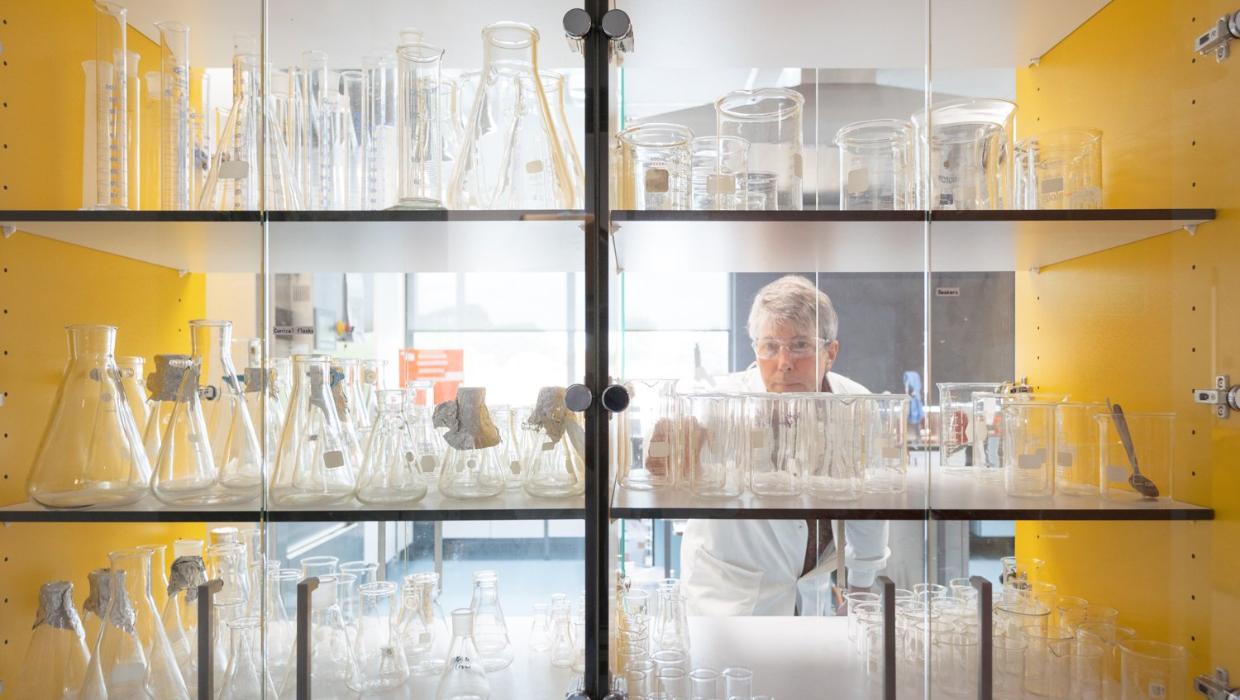Science
New Zealand Secures $20 Million for Innovative Bioeconomy Research

The Bioeconomy Science Institute (BSI) has successfully secured over $20 million in funding from the Endeavour Fund for two innovative research programmes aimed at transforming New Zealand’s food, biotechnology, and horticultural industries. This initiative brings together leading organizations including AgResearch, Manaaki Whenua – Landcare Research, Plant & Food Research, and Scion under one roof, marking a significant step in advancing the country’s bioeconomy.
Groundbreaking Projects Targeting Horticulture and Protein Production
The first project, titled “Super-Storing: Extending the Life of NZ’s Perishable Fruits,” received $10.2 million in funding. Led by Associate Professor Robert Schaffer and Dr. Rosie Schröder, the programme seeks to extend the storage life of rapidly perishable fruits, such as summer fruits and berries, by applying advanced gene technologies. The goal is to replicate the long shelf life of kiwifruit, enabling these products to be transported by sea to distant markets in Asia and Europe. Currently, New Zealand’s fresh fruit exports contribute approximately $3.5 billion annually, primarily from kiwifruit and apples. This research initiative aims to diversify the horticultural sector, aligning with the Government’s objective of boosting export value from $7 billion to $12 billion annually. It is anticipated to generate over $600 million in additional economic activity, reduce food waste, and lower emissions by transitioning from air freight to sea freight.
“This work will directly benefit growers, extend harvest windows, and build resilience against extreme weather,” stated Schaffer. “It’s about unlocking the full potential of New Zealand’s horticultural diversity.”
The second programme, “Turning Pine Waste into Premium Proteins,” has been allocated $10.4 million and will span five years. Led by Dr. David Hooks and Dr. Scott Knowles, this initiative aims to utilize Precision Fermentation (PF) to convert pine forestry residues, which are often discarded or burned, into high-value proteins. Through novel chemoenzymatic methods, the team will transform softwood residues into fermentation feedstocks. These feedstocks will cultivate engineered yeast strains capable of producing specialty proteins that mimic the benefits of traditional animal-derived ingredients.
Dr. Hooks emphasized the importance of this research, stating, “This is more than a research programme. It’s a blueprint for how New Zealand can lead in the next generation of food and biotech innovation.” He added that the project aims to create value from existing resources, highlighting New Zealand’s abundant bioresources and world-class scientific capabilities.
Dr. Knowles explained that converting forestry residues into feedstocks represents an innovative pathway for sustainable protein production, aligning with global efforts to establish climate-resilient food systems. The programme is expected to generate several innovations, including novel enzymes for converting lignocellulosic biomass into fermentable sugars and engineering yeast for high protein expression.
Strategic Changes in New Zealand’s Research Landscape
The establishment of the Bioeconomy Science Institute reflects broader shifts in New Zealand’s research architecture. Following several reviews that indicated the need for structural changes, the Government announced plans to merge the seven Crown Research Institutes into four new Public Research Organisations, including the BSI.
This new organization, unveiled by Hon Shane Reti, Minister of Science, Innovation and Technology, during a recent visit to the Lincoln campus, is now the largest research entity in New Zealand. Transition Chief Executive Mark Piper expressed enthusiasm about the new visual identity of the BSI, stating, “As we start our journey as Bioeconomy Science Institute, it’s great to be able to share this new visual identity which speaks to the organization that we are building, for the benefit of Aotearoa New Zealand and the world.”
During the same visit, Minister Reti announced an additional $6.5 million in industry funding aimed at developing methods to reduce methane emissions from grazing livestock. He also witnessed a licensing agreement with Nelson-based Seaweave to commercialize aquaculture monitoring technology.
The BSI’s initiatives represent a significant investment in New Zealand’s future, positioning the country as a leader in innovative research that supports sustainable practices and economic growth.
-

 World3 months ago
World3 months agoTest Your Knowledge: Take the Herald’s Afternoon Quiz Today
-

 Sports3 months ago
Sports3 months agoPM Faces Backlash from Fans During Netball Trophy Ceremony
-

 Lifestyle3 months ago
Lifestyle3 months agoDunedin Designers Win Top Award at Hokonui Fashion Event
-

 Sports3 months ago
Sports3 months agoLiam Lawson Launches New Era for Racing Bulls with Strong Start
-

 Lifestyle3 months ago
Lifestyle3 months agoDisney Fan Reveals Dress Code Tips for Park Visitors
-

 World3 months ago
World3 months agoCoalition Forms to Preserve Māori Wards in Hawke’s Bay
-

 Health3 months ago
Health3 months agoWalking Faster Offers Major Health Benefits for Older Adults
-

 Politics3 months ago
Politics3 months agoScots Rally with Humor and Music to Protest Trump’s Visit
-

 Top Stories3 months ago
Top Stories3 months agoUK and India Finalize Trade Deal to Boost Economic Ties
-

 Entertainment3 months ago
Entertainment3 months agoExperience the Excitement of ‘Chief of War’ in Oʻahu
-

 World3 months ago
World3 months agoHuntly Begins Water Pipe Flushing to Resolve Brown Water Issue
-

 Science3 months ago
Science3 months agoNew Interactive Map Reveals Wairarapa Valley’s Geological Secrets









